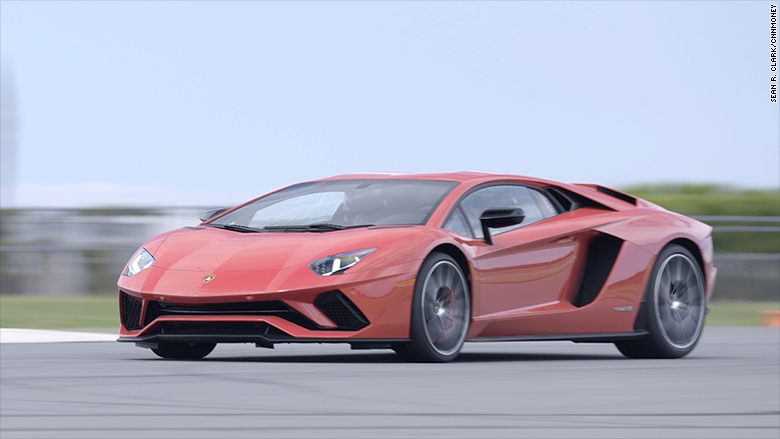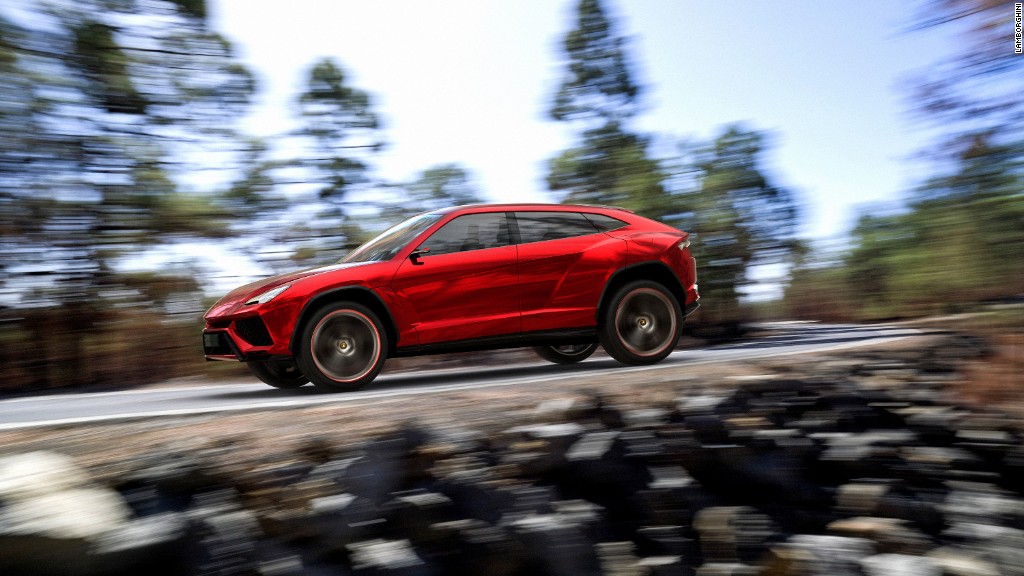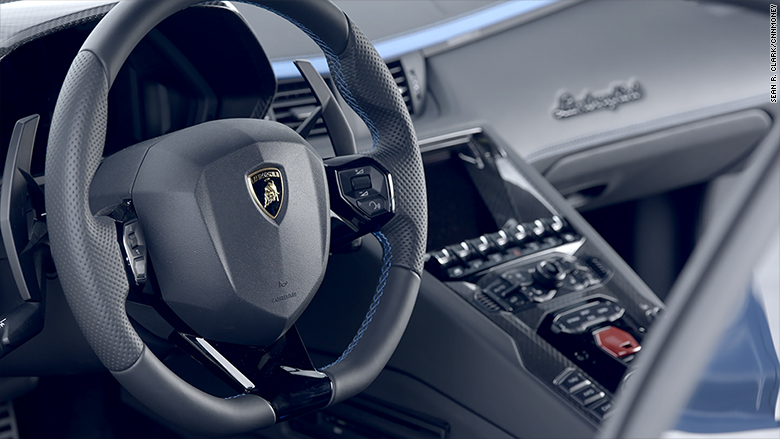
A Lamborghini used to have three driving modes to chose from. Strada, for the street; Sport, for when you want to have fun on the street; and Corsa for track driving.
The new Lamborghini Aventador S adds another mode: Ego.
Yes, it's really called that. It's an almost hilariously appropriate mode for a Lamborghini, the sort of car that caters to those who crave attention. In reality, Ego mode just means you can individually set the transmission, steering and suspension behavior to suit your individual tastes. (Maybe you want a softer ride but tighter steering. Go for it.)
Aside from that, the new Aventador S is much more than just another way to get people to look at you with that special Lamborghini-inspired mixture of envy and disdain. (Or maybe it's all just envy.) The Aventador S, with a base price of $420,000, has a number of improvements over the "regular," Lamborghini Aventador that it's replacing.

Changes beyond the addition of Ego mode include things like more power -- 730 horsepower instead of a mere 691 -- from the V12 engine that's mounted behind the seats, as well as adjustable magnetic suspension, better aerodynamics, and, perhaps most immediately noticeable, four-wheel steering.

Four-wheel-steering allows the car to feel smaller and even more agile. When driving slowly, as the front wheels turn toward one side, the back wheels will turn slightly toward the other, creating a teeny tiny turning circle. At higher speeds, the front and back wheels will turn together for silky smooth lane changes.

There is also an improved, variable four-wheel-drive system. It allows more power to go to the back wheels in the sport and track modes than in the normal street-driving mode. That lets a skilled driver deliberately slide the back end of the car around. It also gives the driver a better feel for the road, and what the car is doing on it, through the steering wheel.
Lamborghini is ready to settle down and have kids
Another big improvement is to the transmission. It's still the single-clutch automatic transmission, as before. Mechanically, it works very much like a manual transmission except that it can shift gears on its own. (You can also tell it to shift gears using paddles mounted on the steering wheel.) Engineers have made some changes to the transmission's mechanical bits as well as to the software programming that runs it.
The transmission had been a deal-killer issue for me in the old version. It worked great when you wanted to drive like you'd sworn not be taken alive. When driven in a more sane fashion, it heaved and bucked with slow and awkwardly timed gearshifts.

The retuned version in the Aventador retains the Lamborghini's aggressive character. In Strada, or street, mode getting going requires a forceful stab at the gas pedal which, after a pause, elicits a lurch forward. From then on, it's fairly smooth going. Even so, on public roads, I never kept this car in Strada mode for long. Sport mode uses more gas, but it's where this car feels most natural. And where its V12 engine sounds the best, belting out great, ripping internal combustion arias.
With a zero-to-60 acceleration under three seconds, it is of course blisteringly quick and it feels nice going through a curve, too. It's still a beast but it now has a tamer side. It's a careful balancing act. Lamborghini, part of the Volkswagen Group (VLKPF), is working to make the brand somewhat more accessible with its upcoming Urus crossover SUV.
But with cars like the Aventador S, it's keeping the raging bull at its heart.

